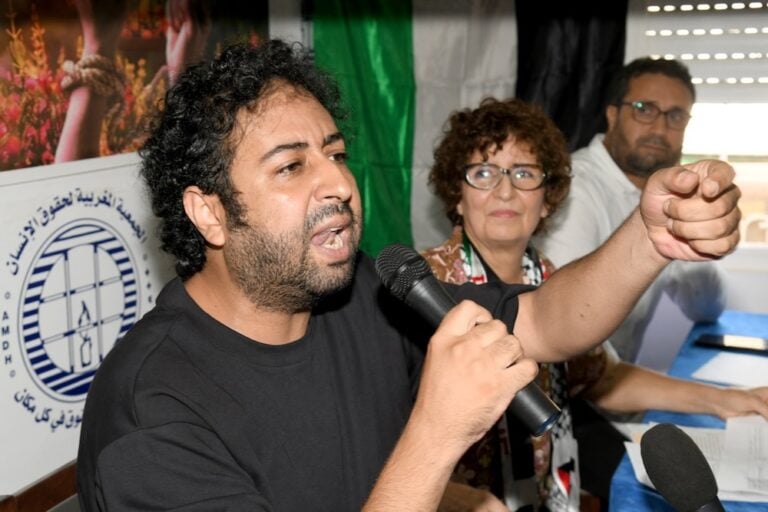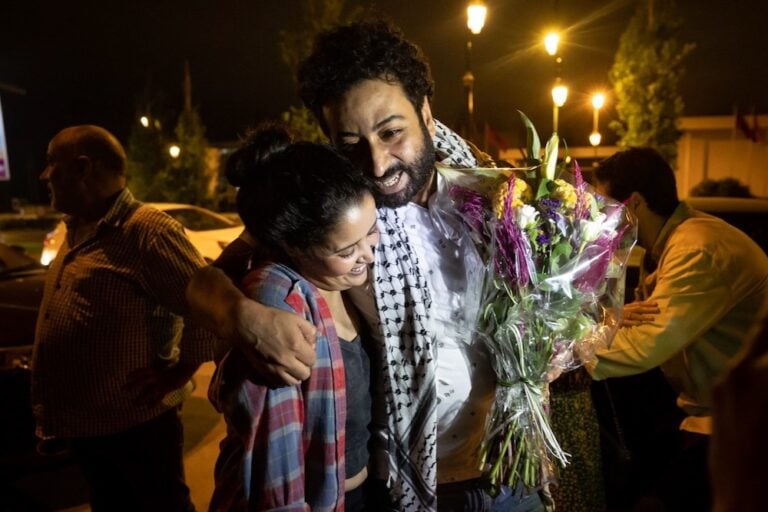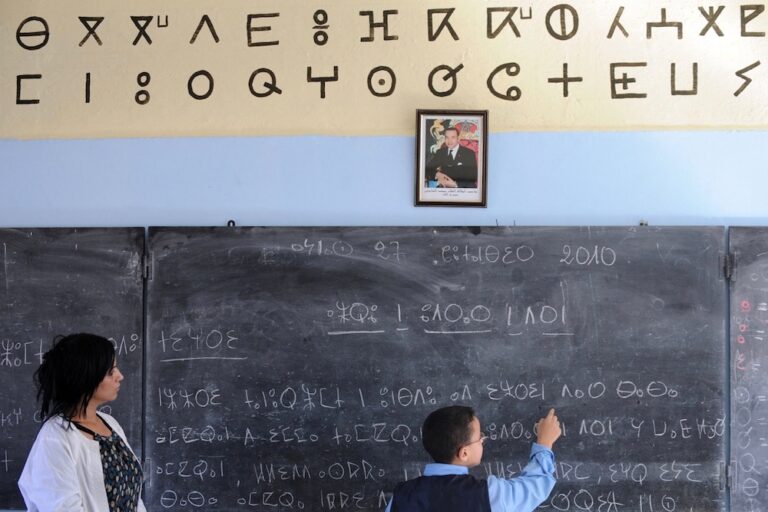(RSF/IFEX) – On 11 July 2008, a Rabat court fined Al-Jazeera’s Rabat bureau chief, Hassan Rachidi, 50,000 dirhams (approx. 4,500 euros) under article 42 of the press law because the Qatar-based satellite TV station wrongly reported in June that people were killed in clashes between police and protesters in the southern port city of Sidi […]
(RSF/IFEX) – On 11 July 2008, a Rabat court fined Al-Jazeera’s Rabat bureau chief, Hassan Rachidi, 50,000 dirhams (approx. 4,500 euros) under article 42 of the press law because the Qatar-based satellite TV station wrongly reported in June that people were killed in clashes between police and protesters in the southern port city of Sidi Ifni.
“We welcome the fact that the judges had the good sense not to impose a jail sentence but it is still shocking that Rachidi was taken to court even though his station issued a correction to the disputed news item,” Reporters Without Borders said. “The haste with which Rachidi’s accreditation was withdrawn and the prosecution that was brought against him are a clear sign of the government’s irritation with Al-Jazeera.”
The press freedom organisation added: “Morocco hosts Al-Jazeera’s regional bureau and it should instead ensure the independence of the state and privately-owned media. An essential step towards this would be to decriminalise press offences.”
Rachidi reported on 7 June that there had been deaths in the course of violent clashes between police and jobless youths blocking the entrance to the port of Sidi Ifni. He based this report on the statements of local residents and a press release by the local branch of the Moroccan Committee for Human Rights (CMDH). It turned out to be wrong, and Al-Jazeera issued a correction. But Moroccan information minister Khalid Naciri demanded a public apology from Rachidi.
Six days after the report, Rachidi was charged with “disseminating false information” and his accreditation was withdrawn. Since then, he has been unable to continue working as the pan-Arab TV station’s Rabat bureau chief.
Presenting the case against Rachidi in court, the prosecutor accused him of “putting out a false report liable to disturb public order and undermine the kingdom’s stability, acting in bad faith, seeking a scoop without checking the facts and then not offering an apology.”
On the same day, Ibrahim Sebaa El Layl, the head of the CMDH office in Sidi Ifni, was sentenced to six months in prison for “outrage” and “disseminating imaginary crimes.” He was convicted of being Rachidi’s accomplice and was sentenced to pay the same fine, 50,000 dirhams (approx. 4,500 euros). He is currently held in Salé prison, near Rabat.
Article 42 of Morocco’s press law provides for a prison sentence of between one month and one year and fine of between 1,200 and 100,000 dirhams (approx. 100 and 9,000 euros) for “the publication, dissemination or reproduction by any means of false news or allegations, or inaccurate facts based on fabricated or falsified evidence attributed to third parties, when this disrupts public order or arouses fear in the public.”


